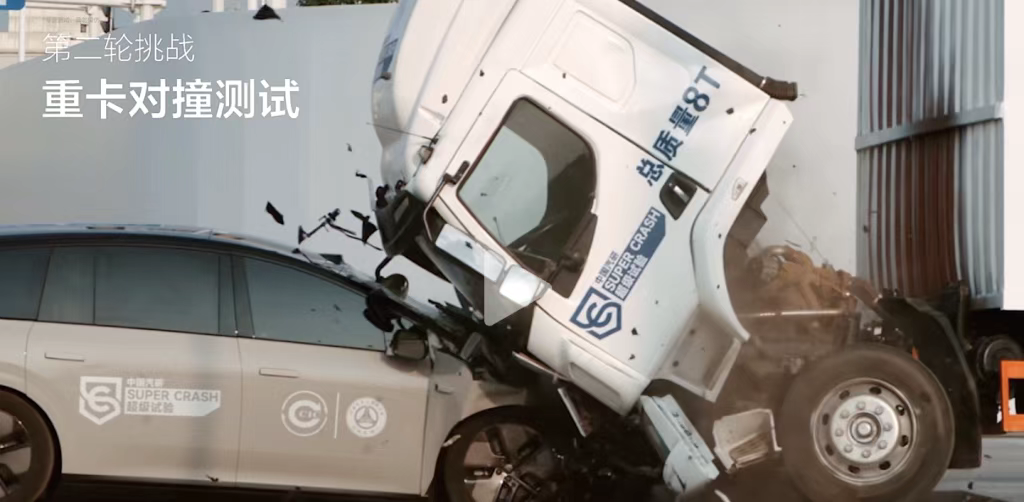
The Ideal i8 collision test incident came to an end after a week of fermentation.
On the evening of August 6, Beijing Ideal Auto Co., Ltd. (hereinafter referred to as "Ideal Auto"), China Automotive Engineering Research Institute Co., Ltd. (hereinafter referred to as "CAERI"), and Dongfeng Liuzhou Motor Co., Ltd. (hereinafter referred to as "Dongfeng Liuzhou Motor") issued a joint statement.
The three parties stated that they had reached an agreement on the relevant circumstances of the incident after full communication. Li Auto and China Automotive Research Institute issued separate apologies.
Ideal Auto once again emphasized that the purpose of this test is to verify and improve the passive safety performance of the Ideal i8, and is not targeted at the safety and quality performance of any other brand of vehicles.
"As for the testing process, the Dongfeng Liuqi Chenglong brand was accidentally involved in public opinion controversy. We underestimated the brand-related risks that may be caused by the dissemination of related content, which led to the Dongfeng Liuqi Chenglong brand being caught up in negative public opinion for no reason, damaging its brand image and bringing adverse effects. It also caused misunderstandings to truck drivers and the relevant public who have long supported and used Dongfeng Liuqi products. Ideal Auto hereby expresses its sincere apologies." Ideal apologized.
China Automotive Research Institute (CARI) stated, "As the commissioned agency for this test, CARI failed to promptly and clearly explain to the public that the Dongfeng Liuzhou Chenglong used vehicles were only used as 'mobile barrier vehicles' that met specific standards. The test itself was not, and does not constitute, an evaluation of the safety and quality performance of its products. This resulted in the loss of key information and public misunderstanding. In terms of process control, CARI failed to fully anticipate and avoid potential risks arising from the release of incomplete information. CARI apologizes for this."
Dongfeng Liuzhou Motor stated that as an important commercial vehicle and passenger vehicle business unit under Dongfeng Motor, it will continue to diligently develop high-quality products and provide excellent services. It will consciously resist unfair competition, adhere to the bottom line of legal and compliant operations, and uphold the principle of seeking truth from facts, contributing to my country's historic leap from an automobile power to an automobile powerhouse.
At the same time, the three parties also issued a joint initiative to "strictly adhere to the bottom line of self-discipline and jointly foster healthy competition and cooperation." They called on the automotive industry to exercise strict self-discipline, uphold the principles of integrity and business ethics in product development, testing and verification, and promotion, and to eliminate any form of unfair competition, such as derogatory comparisons . Testing and certification organizations should adhere to professional standards, ensure scientific and rigorous testing processes, and publish truthful, accurate, and complete information, jointly safeguarding a clean and healthy market order.
At the Li Auto i8 launch event on the evening of July 29th, Li Auto played a test video of the Li Auto i8 colliding with a Chenglong truck, a truck owned by Dongfeng Liuzhou Motor. In the video, the Chenglong truck was struck, its four wheels lifted off the ground, and the cab and rear cargo box were clearly separated. This incident attracted attention from Chenglong Truck and the public.
Li Auto and the China Automotive Research Institute (CARI) subsequently responded multiple times, emphasizing that the crash test only focused on the Li Auto i8 and did not assess the quality of the Chenglong truck. However, questions about the standardization of automotive product testing information release and the transparency of standard implementation have sparked widespread discussion and questioning.


